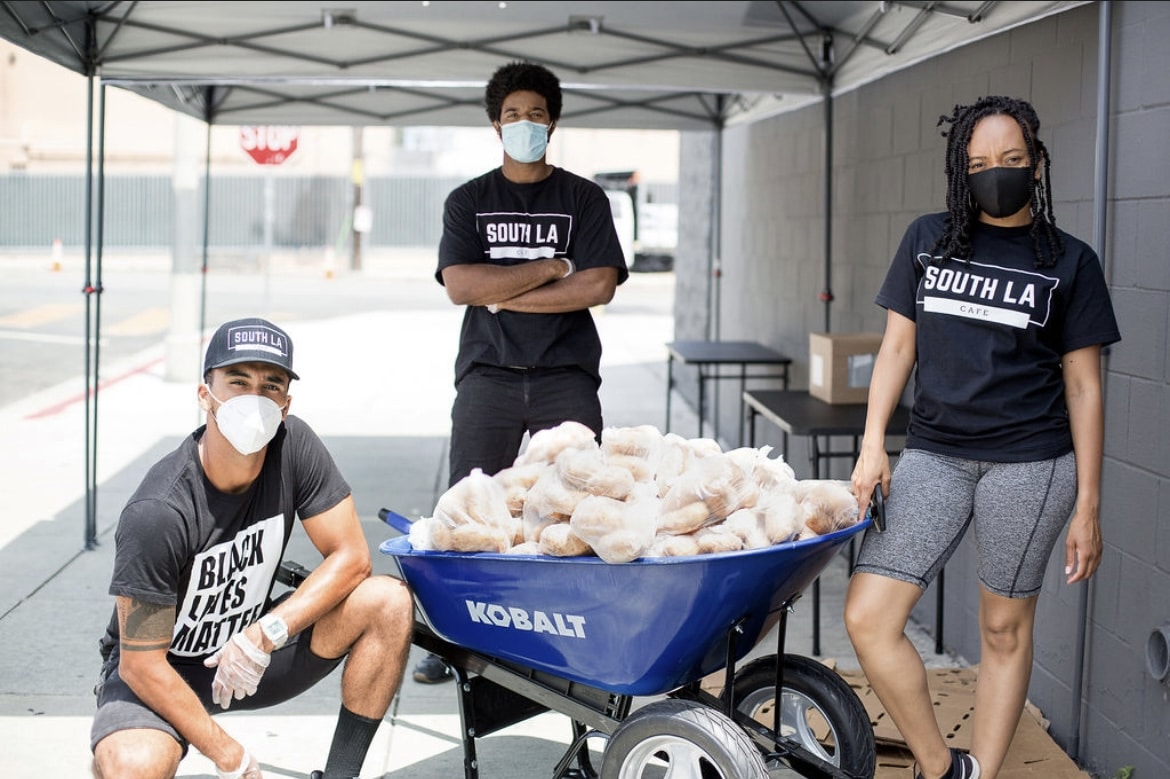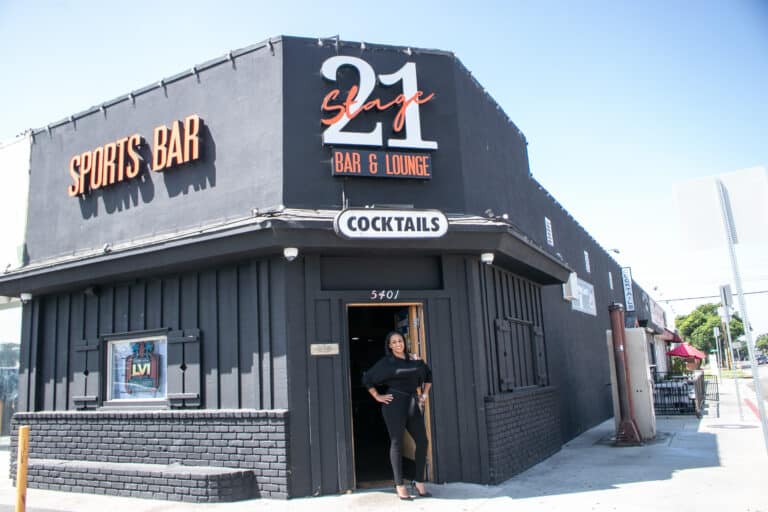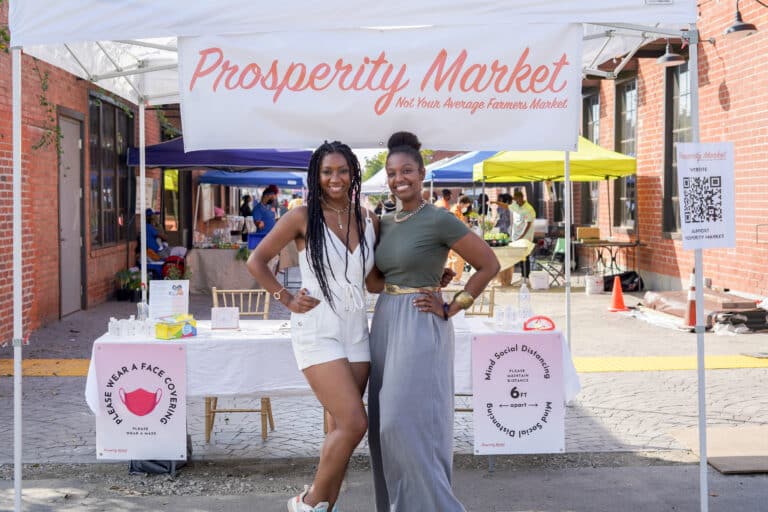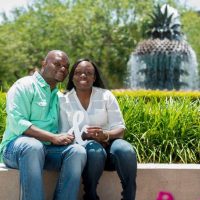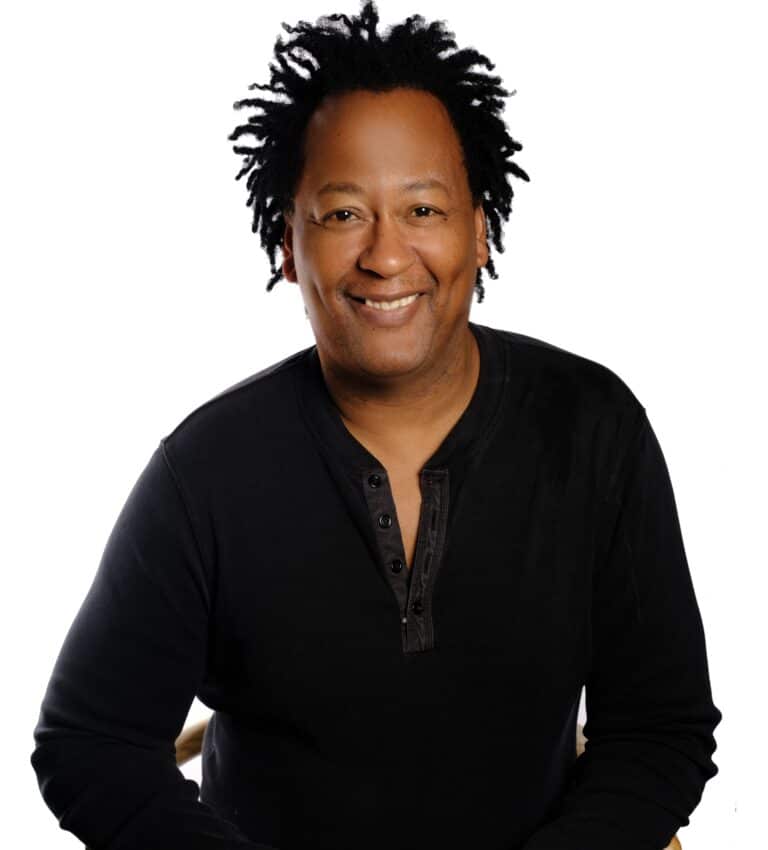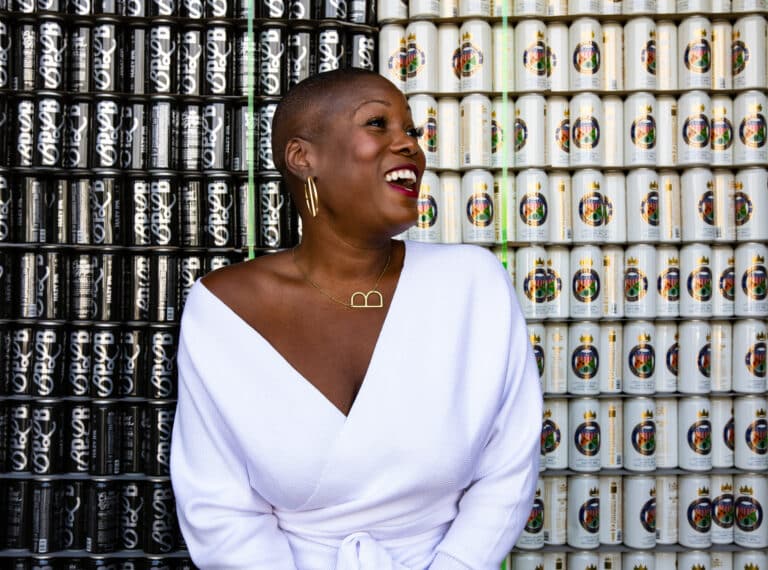|
Getting your Trinity Audio player ready...
|
Joe and Celia Ward-Wallace are the founders and co-owners of South LA Cafe in South Central Los Angeles, also known as South L.A. This Los Angeles area is a community with extremely limited food sources and is considered a food desert, meaning it lacks access to fresh foods and has a “drought of supermarkets.” This results in an influx of fast food restaurants, liquor stores, and small convenience stores.
Joe states this is universal. “Let’s say I go on vacation and want to see some of my people. Google “fast food,” and it will take you to the neighborhood. It’s insane.”
He is correct, as the National Center for Biotechnology Information did a study finding that neighborhoods with higher concentrations of Black residents had higher access to fast food. The results are consistent nationwide, even in rural areas.
The Idea of South LA Cafe
Joe says the idea of South LA Cafe came to him 18 years ago while he and Celia were in other careers. “We thought about having a coffee shop, something brick and mortar, but you know how time got in the way and went by, and before we knew it, I’m now eligible to retire.
“So now the clock started ticking, and I thought, ‘Why not now?’ Plus, we saw what was happening to the community, which woke our eyes up. We didn’t want someone else opening something like this and not doing it for the community as we would.”
The California native says he happened upon the future location of South LA Cafe by “divine intervention.” He was daydreaming while driving home, and he missed his exit. He rolled up on a street and saw a building with a “For Lease” sign. He went home and told his wife, and they started leasing negotiations soon after that went back and forth for months.
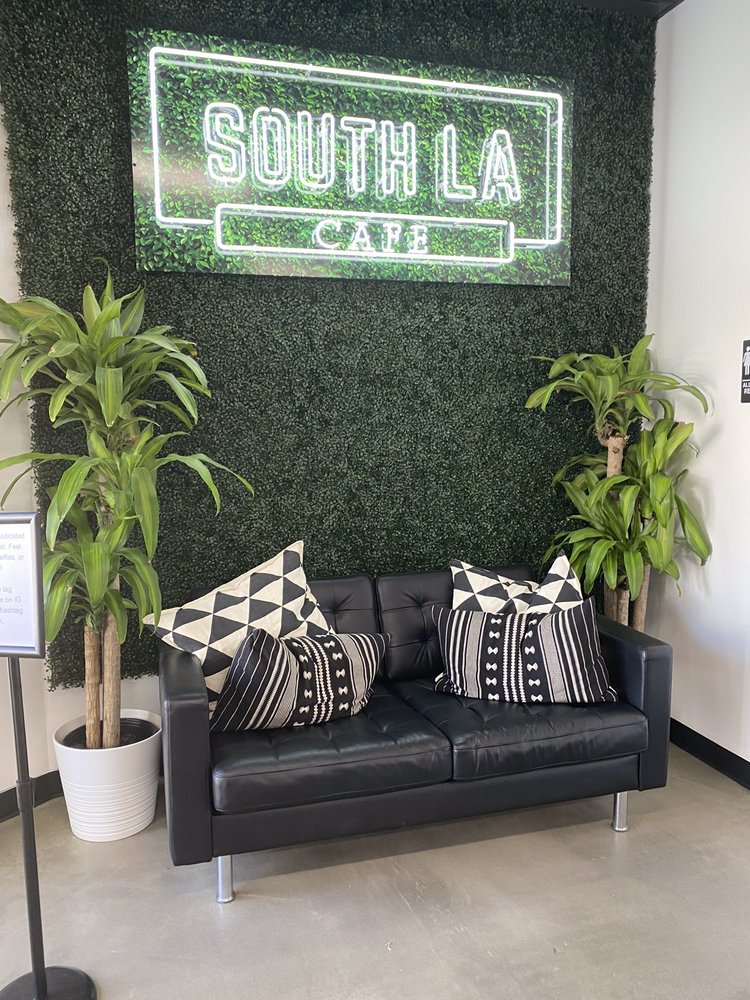
Celia said during this time, her husband thought it was more of a “pipe dream” and wasn’t sure if it would happen. “You have to know my husband,” she says. “Every day is another idea. He’ll come home and say, ‘I got this great idea!’ and I’d say, ‘Go ahead,’ and see what it’s about, but I wasn’t thinking much about it.”
She continues, “Each day he came back [from negotiations], we’d discuss what we wanted to ask for and how they’d probably say no. But he’d come back and say, ‘Guess what? They said yes.’ Then we’d discuss what else we could ask for, and they’d say yes, so we thought, ‘It looks like this was meant to happen.’ Then we opened up.” That was 2019.
Joe and Celia say the response from the South Central community has been amazing, adding, “[They] wrapped their arms around us.” Joe adds, “We had people tell us, ‘We have been waiting for you guys.’ I told them I had been waiting to do this; I couldn’t wait any longer. I got tired of going to other places outside of my neighborhood and not being treated the same way. That’s the big reason why we wanted to do it ourselves.”
- Los Angeles Entrepreneur Marlo Richardson Debuts Braymar Wines
- Prosperity Market’s Carmen Dianne and Kara Still Create Change in LA
Addressing Three Primary Issues
“There were three primary social issues we were trying to address,” Celia says. “We live five blocks from the cafe; we’ve been here 25 years. This is our neighborhood, and we love it. And yet, we have a lot more privilege than the average person in our community, so if we really want something, we can drive and make it happen. But on a day-to-day basis, most people here are lower-income, working multiple jobs, and public transit-dependent, so they don’t have the same opportunities because they’re looking for convenience.”
She details that food insecurity was the first issue they wanted to address in the community. She says, “This is actually a food desert due to systematic inequality and racism that is historic in the community, and so because of that, we wanted to have a place where people could get access to fresh, healthy, and affordable food that was nearby.”
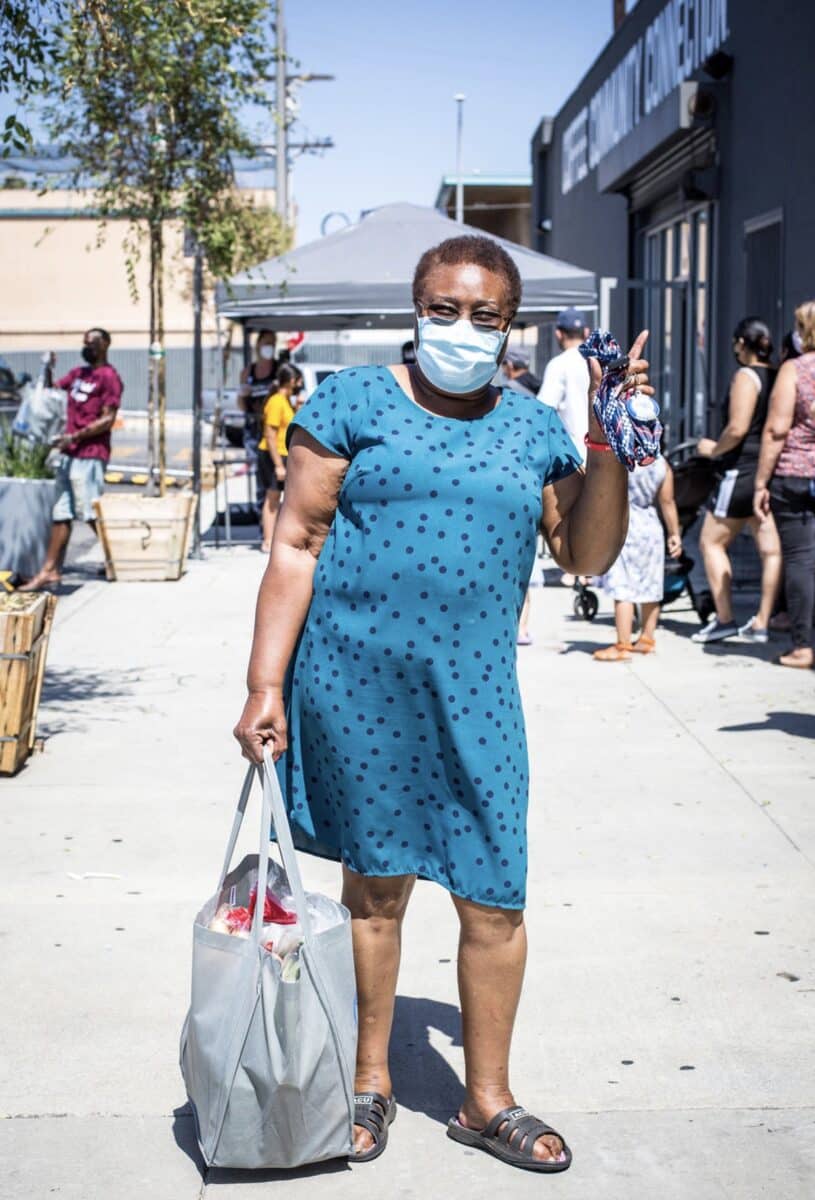
Safety from police violence comes next for the couple as one of the issues in the South Los Angeles community where they live and serve. They saw the importance of the community having a place to feel safe and heard, especially given the relationship between the LAPD and the LA Sheriff’s Department and with constant occurrences of police brutality.
The final social issue has to do with gentrification. “We wanted a place where culture could be preserved and created,” says Celia. “But also cultural sovereignty where it still feels like the community and has all the cultural representation, whether it’s the art, the clothing, food, or the people who work behind the counters. We thought, ‘Let’s do our part.’”
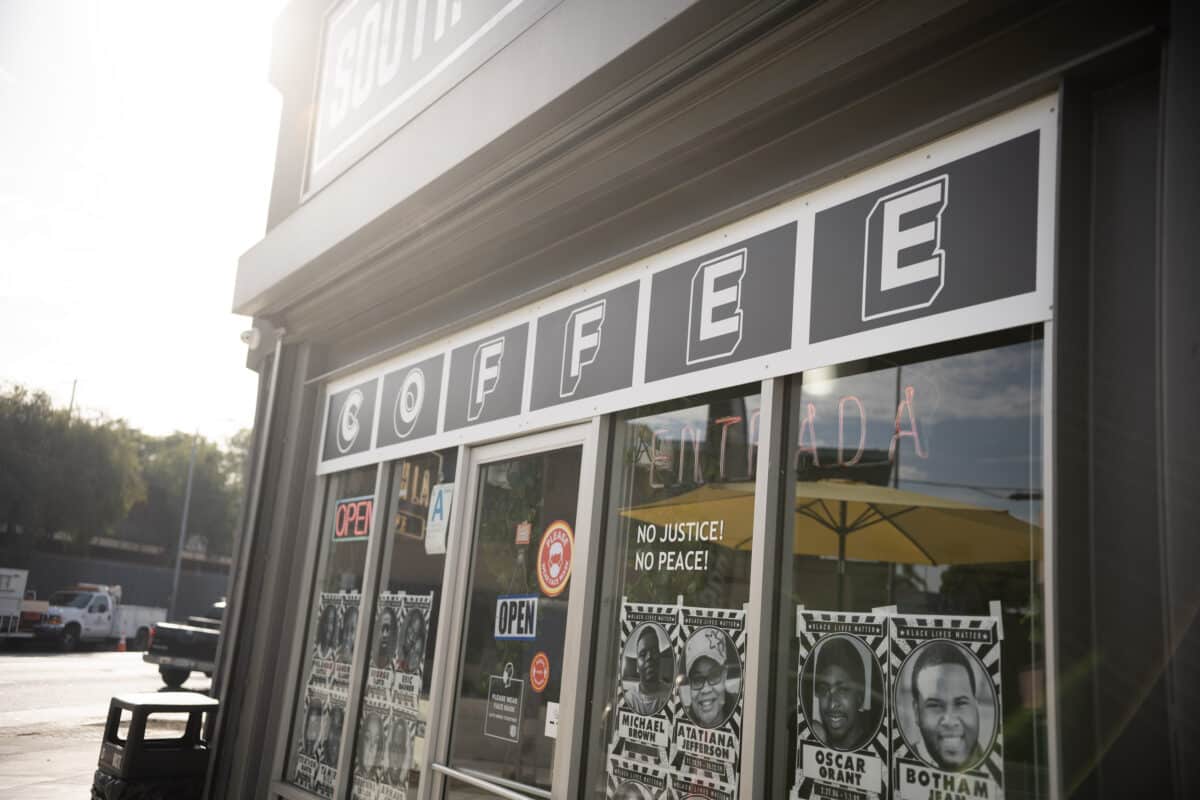
Celia and Joe understand how vital cultural perseverance is, especially the history and knowledge that enriches a said community and its residents, knowing gentrification can change a community’s narrative or, worse, try to erase it forever.
It’s All About Serving
South LA Café is the parent brand and cafe. At the same time, South LA Cafe Hospitality (SLAC) Hospitality is the brand that works with vendors and caters for other companies, such as the National History Museum of Los Angeles (NHM.)
SLAC Hospitality has community events, such as COVID testing and vaccinations, signing up to sponsor groceries, and donating food to South L.A. families and neighbors. They’ve helped get almost one million meals to about 170,000 residents thanks to the help of their volunteers, community business, organizations, and entrepreneurs.
That’s why when SLAC Hospitality scored a ten-year contract with the Natural History Museum of Los Angeles (NHM), it showcased the importance of residents’ involvement in their communities.
“One of the things Joe and I have learned over this time is now we’re like the cool kids,” Celia says. “We have the brand that everybody wants to be a part of because we have the knowledge and the trust factor of the community, which is extremely hard-earned and authentic.
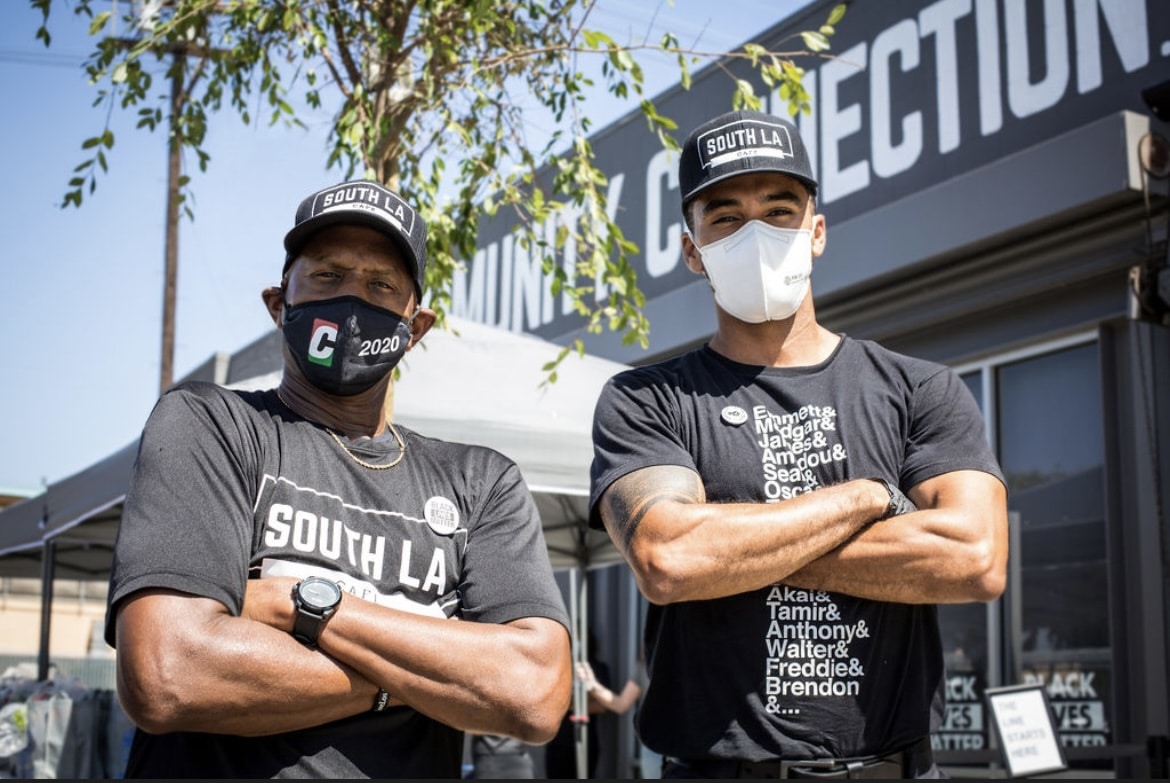
“In contrast, if those wanting to partner with us don’t have the community connection we have, the deals will not move forward because the community will be out there protesting or saying, ‘Why are these people here?’ So, we have a lot of experience in turning down opportunities that did not seem to align with the partnership, with the collaboration, and with the organization because we know we only have one chance to blow it with our community by linking up with the wrong partner,” she says, alluding to events leading up to winning the 10-year contract.
The couple shares that SLAC Hospitality was referred to a consultant working for a billion-dollar corporation bidding for the restaurant & hospitality management contract at NHM.
The consultant wanted to meet with Celia, and the optimism quickly faded during the discussion when Celia didn’t feel the consultant’s respect towards their business.
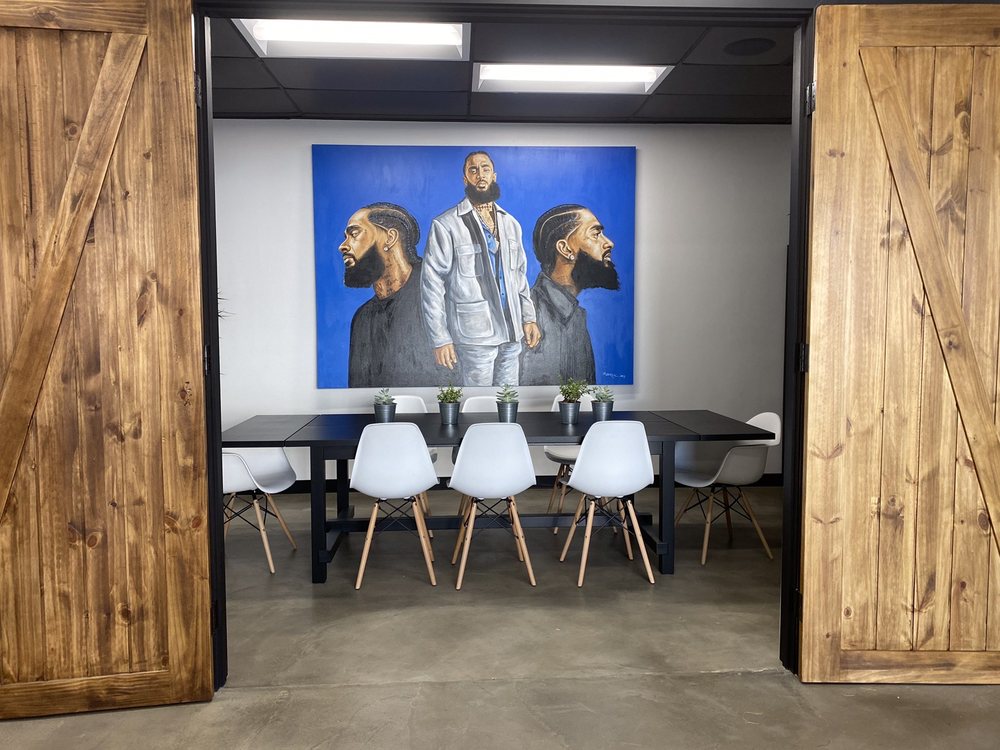
At home, Celia told Joe that something was off and that something bigger was happening behind the scenes. It turns out South LA Cafe was being asked to be a subcontractor within the proposal the billion-dollar company planned to submit to NHM.
“We told the museum,” Celia says, “‘We know you’re saying you want this to be hyper-local and minority and women-led businesses in this deal. So, who do you have at the table representing this demographic who is competing for the whole contract, not just as a subcontractor?’”
The answer was no one, to which SLAC replied, “Now you do.” And with that, there was a new hyper-local applicant in the race, and the David and Goliath chapter began.
Why It Matters
Joe grew up with his siblings in a single-parent home while his mother did what she had to do to survive. He says, “I have three sisters, and my mom managed to work her magic. I didn’t know we were poor until high school when I got bussed into the Valley.”
His mother, Vonnie Burnett, was an evangelist and an entrepreneur. Joe recalls when she had him and his sisters go door-to-door, selling sweet potato pies to help raise funds for the church, including a church trip to Africa.
“In that kind of selling, you’re knocking on someone’s door and must be honest, personable, and real. You must learn how to walk away from objections or go around them and still sell the sweet potato pie. I learned it early; it wasn’t really a no, it was just a, “Maybe I’ll sell one tomorrow when I knock on your door again.’ I just learned to grind early, and then the sales from her. And I don’t know where she got it from except for the will to survive and the will to make it.”
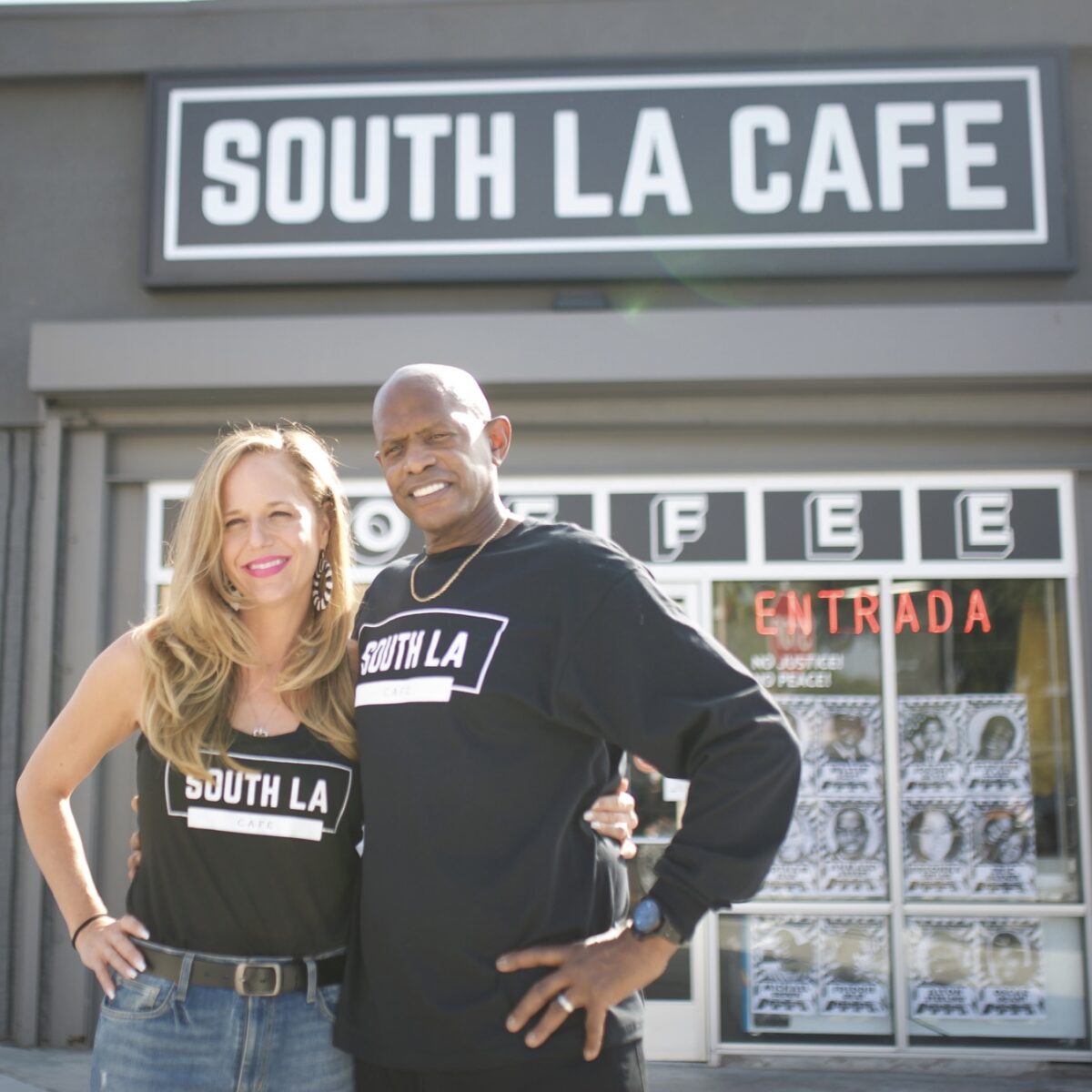
The couple both agree that “the grind” shaped his career path. Joe admits he gravitated to careers most people steered clear of, like sales and marking. “I had jobs where it was commission-only. People were afraid of those, but I would take them because I knew I could do it,” he says. “I sold water bottles before it was popular. I sold tickets to the L.A. Clippers before they were popular. I wasn’t afraid of it.”
Celia grew up near South Central. “I’m a child of community organizers,” she says. “My parents’ focus when I grew up was looking at the intersection between civil rights and women’s rights movements. Their work focused on keeping the General Motors factory in Van Nuys open as we started to see auto factories where working-class people could get a decent living were closing to go overseas. We did door knocking, picket signs, and demonstrations working primarily in the Black and Brown community, but from a multiracial coalition.” She is also a double major from UCLA with a counseling certificate, a law school degree, and a certified coach. “My parents were workaholics for the cause,” she says.
The couple met in 1997, and both got into real estate at the start of the upward trajectory. They had successful careers and went into several business ventures together before the 2007/2008 economic collapse, losing everything.
The couple switched gears and shared they had a spiritual awakening. Joe became a firefighter, and Celia started a coaching career. “I started giving out free advice, and it resonated with people, and they loved it, and I loved it because I was helping; it came naturally to me,” she says. She credits her husband and his support as she left her full-time job to build a coaching and consulting business.
The couple remains humble and says there was no overnight success. “We’ve learned all these things from failures, successes, and tricks,” Joe says. “We’ve applied it to South LA Cafe Hospitality. We share the entrepreneurship gene.”
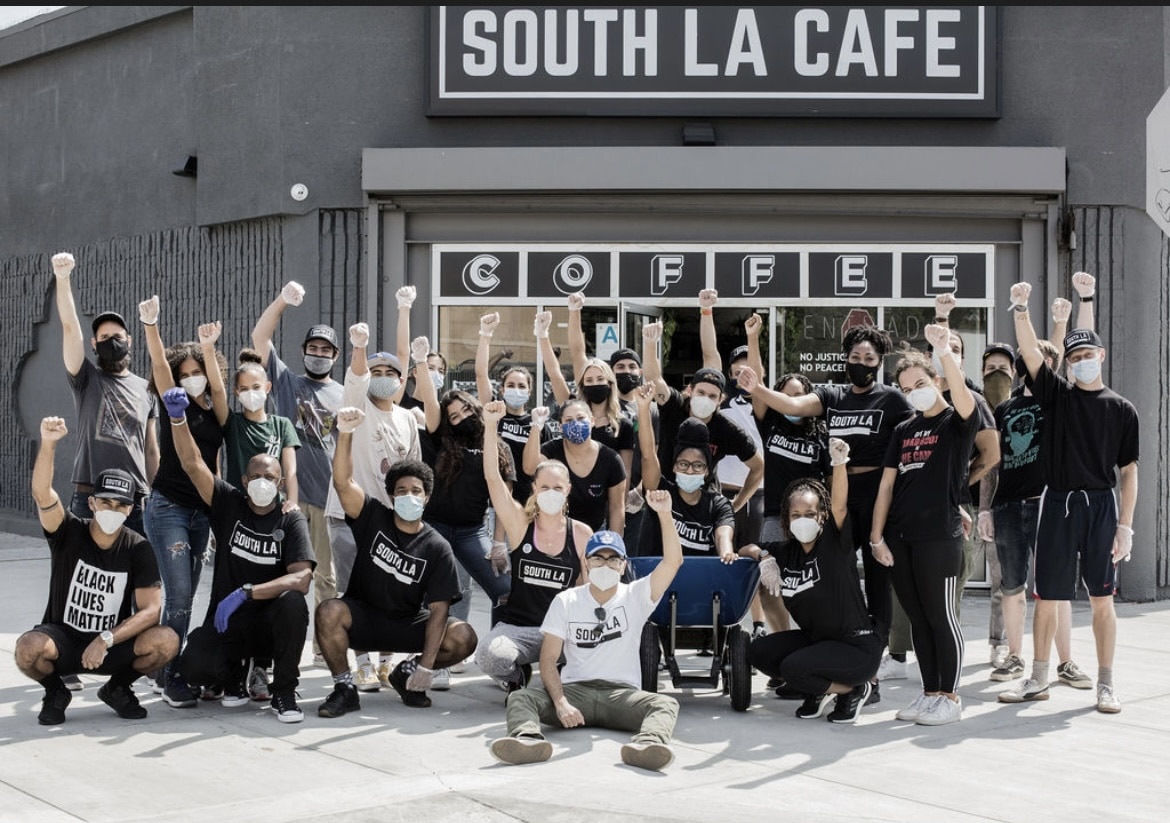
Committed to Making a Difference
“I did a happy dance,” Joe says after learning they were awarded the contract from the Natural History Museum in December of 2022.
“We were thrilled. We grew up there. It’s five minutes from our house, and we have a membership for our family. My mom used the museum as a babysitter, dropping me off, and my sisters would be there all day,” shares Joe. “This is a full circle moment. This museum used to take care of my family, and now I can take care of it and all of the families within my community.”
Since starting the contract in January of this year, the history-making duo has launched a new restaurant called Neighborhood Grill in partnership with the team behind Post & Beam, a Baldwin Hills local favorite.
Within Neighborhood Grill, they placed a sizeable grab-and-go refrigerator that sells healthy food options sourced from over ten local women and minority-owned vendors. Joe and Celia are living their mission to fight racial, economic, social, and food inequity. What started on the corner of Western and King in their hyper-local community has now blossomed into their proprietary framework, the revolutionary Community-Centered Business Model (CCBM).
RELATED: Zys_Oakland to Offer Second Chances and Service to Community
The Ward-Wallaces are leading systemic change in South L.A. and creating the blueprint for others to do the same. As Celia says, “When you put the community at the center of your business, it [the business] has the power to strengthen and transform the community, not exploit and extract from the community.”
Check out South LA Cafe and South LA Community Foundation, on Facebook, Instagram, and YouTube, or show your support for them at the National History Museum of Los Angeles.

